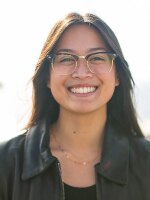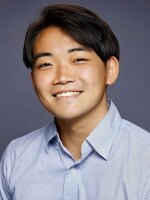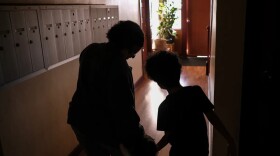In a series of last-minute revisions Thursday, the Grossmont Union High School District board reworked two proposed policies on public protests and prayer in schools.
One proposal had aimed to loosen the district’s rules on when and how teachers and staff could express religious views. The second would have given district officials broad power to restrict where protestors could stand during board meetings.
Teachers, students and other community members raised concerns about both proposals — especially the protest restrictions. Jackie Naah, a teacher at Valhalla High School, said it felt like the board was trying to avoid seeing people who disagreed with their policy decisions.
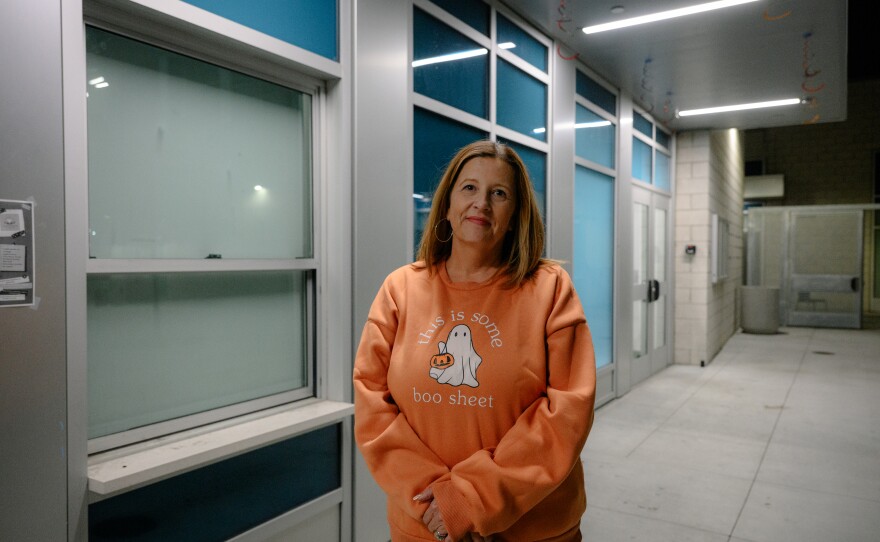
“As a social science teacher, we teach kids about the First Amendment and it's first because it's paramount,” Naah told KPBS during the school board’s meeting Thursday night. She said the protest proposal was “an immediate departure from government transparency and the public's right to assemble.”
Community push-back before the meeting had an impact.
In an email to KPBS Friday morning, Board President Gary Woods said the changes to both the protest and prayer policies came because of concern from community members.
“The goal is to encourage parental and community engagement, and not to hinder public comment,” he said.
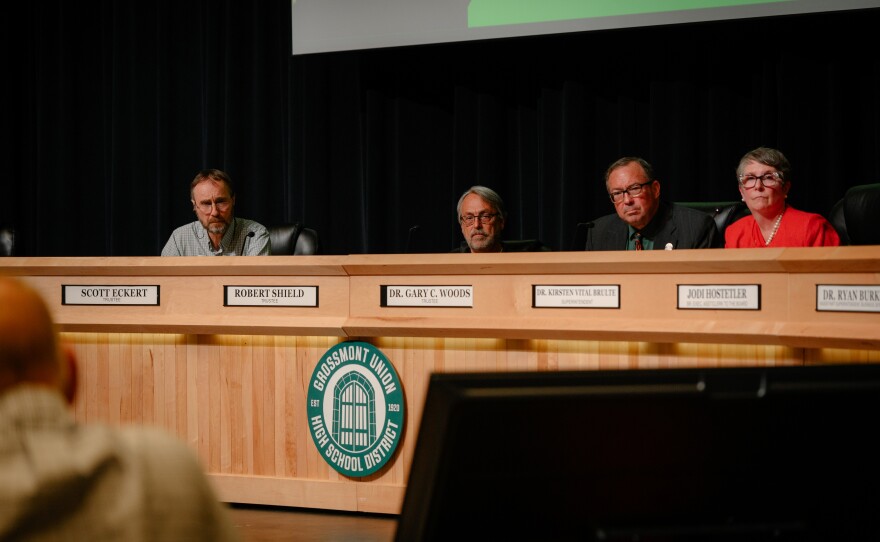
Grossmont Trustee Chris Fite, who had opposed the original proposals, said the revisions were significant improvements.
“This, to me, makes this acceptable,” Fite said of the revised policy on religious expression. “I don’t want teachers proselytizing in the classroom.”
The religious policy will get a second reading at the next meeting. The board majority approved the protest policy last night.
Declaring ‘no-activity zones’
The policy on public protests centers around the designation of so-called “no-activity zones.” Members of the public would be barred from entering those areas for “picketing, leafleting, protest or other expressive activity.”
The district wanted to give the superintendent or a “designee” the power to create those zones anywhere around the doors of a school board meeting, without any restrictions on placement or size.
District officials argued they would use these zones to create a safe path for trustees, district staff and members of the public to enter and exit meetings.
District teachers and some other attendees of Thursday night’s meeting did not hold back in their criticism. Stephanie Macceca, the vice president of the district’s teacher’s union, said she thought the policy was a response to the protests the district faced earlier this year.
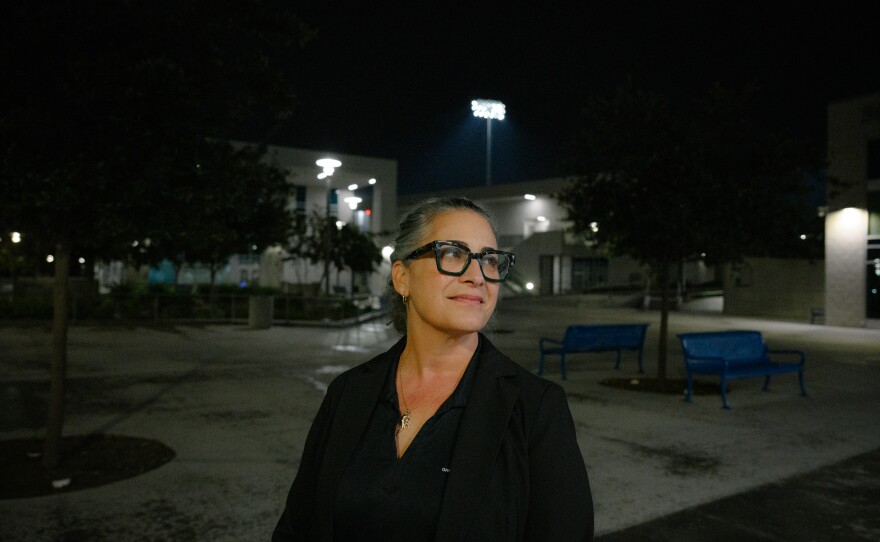
“Sometimes we have had 600 people in attendance,” Macceca said. “I think that the board is trying to enact some policies to prevent those type of gatherings again.”
In their last-minute revisions, district officials added new limits on those zones. The revised policy specifies that they can’t be wider than 10 feet and have to be “the minimum area necessary to maintain a safe and unobstructed path to the meeting entrance.”
Fite said the new language was “light-years better.” Still, he said it was the first time he was seeing it and asked the other trustees to delay the vote to give the public time to review it.
But he was out-voted by the board’s conservative block — Woods, Robert Shield, Scott Eckert and Jim Kelly. The final tally was 4-1, with student board member Ava Hersch abstaining.
Loosening restrictions on prayer
The original version of Grossmont’s policy on religious expression, last amended in 1996, said staff “shall not lead students in prayer or participate in student-initiated prayer.”
The district wanted to change that line to say that staff “shall not coerce students in prayer or other religious activities as part of their official duties.”
They also wanted to add new provisions allowing parents to opt their students out of instruction that they feel infringes on their religious beliefs and reinforcing the right of teachers and students to pray together outside of school hours.
But again, facing public concerns, district officials made last-minute changes to the proposal on Thursday. Specifically, they added back that staff would not “lead” students in prayer or other religious activities — either as part of their official duties or during established work hours.
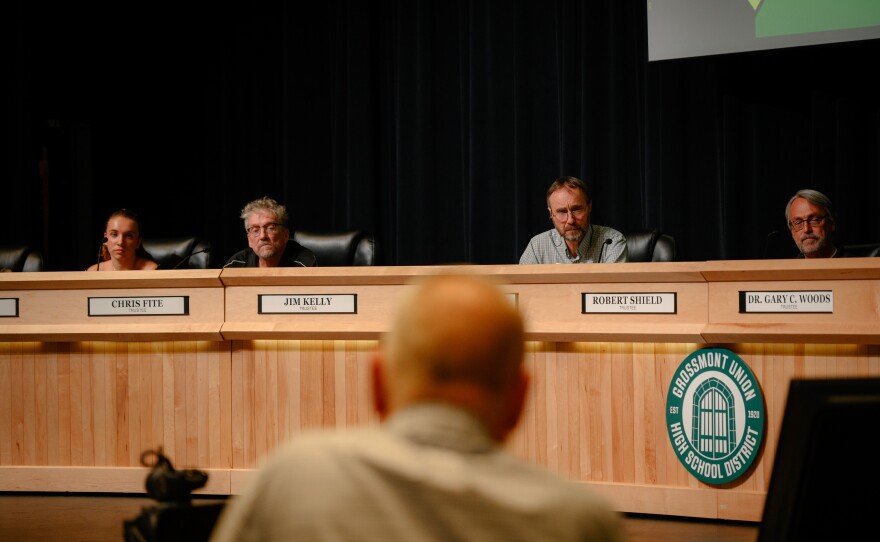
Fite was one of the opponents of the original proposal, saying he didn’t want teachers “proselytizing in the classroom.” But he said Thursday he appreciated the superintendent’s efforts to revise the language, particularly around several recent U.S. Supreme Court rulings.
“I think now it’s actually amended to the point where I can support it,” he said.
The board will hold a final vote on the religious beliefs and customs policy at their regular meeting next month.
A pattern of partisanship
Despite the board clarifying elements of these proposals, critics say they are still wary of the conservative majority’s penchant for partisan politics.
At Thursday’s meeting, the majority also approved the job description for a single librarian position who will oversee all libraries in the district. That move follows a decision last March to cut all of the district’s school librarian positions.
Publicly, the majority blamed the cuts on the district’s $2.4 million budget gap. But text messages obtained by the San Diego Union-Tribune showed their chief of staff had pushed them to target librarians, saying they were “anti-board” and wasting district money on “woke” books.
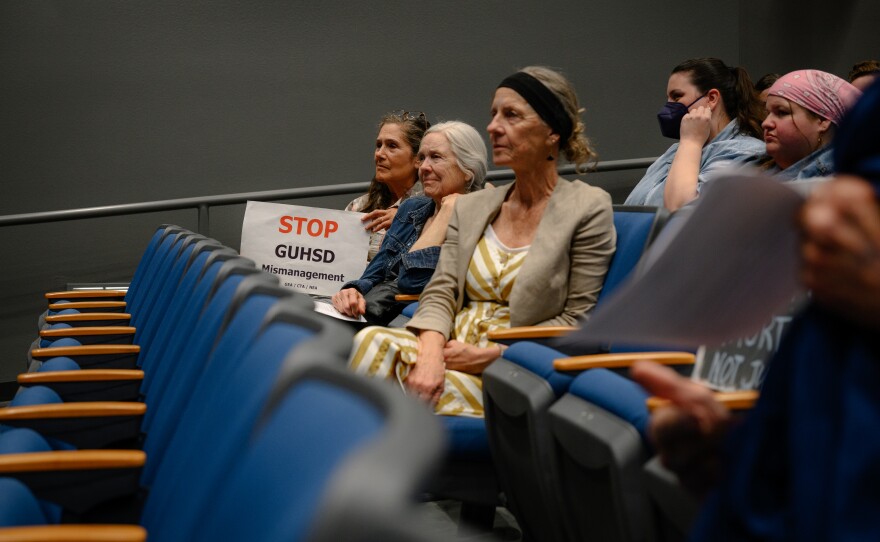
Finally, at Thursday’s meeting the conservative block adopted a resolution for nonviolent civil discourse in schools that mourned the September assassination of conservative activist and Christian nationalist Charlie Kirk.
They ignored a request by Fite and community members to amend the resolution to also recognize in the proposal the assassination of Minnesota Democratic state lawmaker Melissa Hortman this summer.
In his reading of the resolution Thursday, Woods replaced the phrase “all Americans” with “all Christians.”
He later told KPBS in an email that he misspoke.
Some members of the public supported the majority’s actions. David Hoffman said he commended what he described as the board’s support for religious freedom and freedom of speech.
“The board majority, your votes, your opinions, reflect the majority of the people living in East County,” Hoffman told the board.
But Naah told KPBS she saw Thursday’s decisions and proposals as part of an effort to micromanage the curriculum and bring more politically-charged topics into the district.
“It's not my job to bring politics into the classroom,” she said. “It's my job to teach kids to think critically and to give them facts that happen in history — then it's their job to decide how they think about that.”

